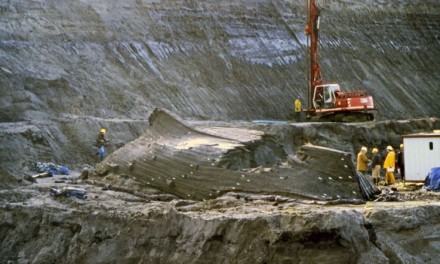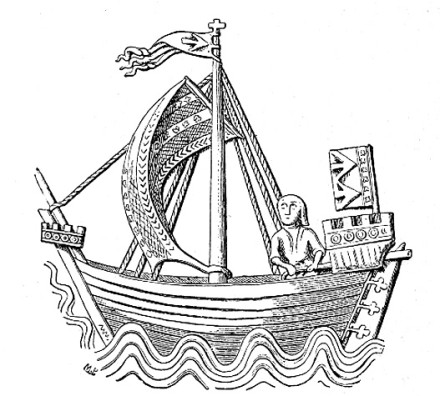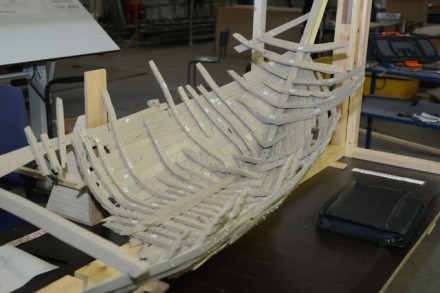History
Largest cog
During the construction of a harbour near Doel in Antwerp the wreck of a cog was found in 2000, that was named the Doel Cog. It is 22 meters long and seven meters wide, making it one of the largest cogs ever found. The parts were salvaged, but only in 2014, funds were made available for research. The Flanders Heritage Agency performed the investigation of the wooden parts and started conservation.

Description
Length: ca. 22m
Width: ca. 7m
Height: ca. 3m
A cog is a type of ship that was first used in the 10th century in Northern Europe and was used on a large scale from the 12th century. It was one of the most important ship types in medieval Europe and was used a lot by the Hanseatic League. Cogs were caravel built ships with one mast and one square sail. They were spacious and relatively cheap, but strong enough for ocean voyages. The Doel Cog is unique since it is one of the largest cogs ever found.

Status
After having been in an impasse for a long time, the cog has been conserved in a workshop in Antwerp near the Kattendijkdok. There was much criticism from society on the mistreatment of this heritage in the years after the initial find. The first phase of the conservation (iron removal) was completed there. After this, the Doel Cog was moved to a new workshop in Lille (Belgium) in 2022.
There, the second phase of the conservation started: impregnating the wood with PEG (polyethylene glycol). The intention is that the wooden parts can subsequently be put back together and be shown in a museum context in Doel.
Before the conservation of the wreck started, the help of the School for Ship Model Building in Baasrode was enlisted to create a model of the cog. It was made by two model builders of the school, Maurice Kaak and Koen de Vriese, and Peter Hautekiet of the association Tolerant. About 750 pieces of wood were recovered, which have been numbered. These were reproduced true- to scale with a 3-D printer and put together based on the photos and drawings of the excavation. In the end, the model was just over two meters long and it gives a good idea of the construction of the cog.

References
- Onroerend Erfgoed.
Doelse Kogge verhuist naar Wechelderzande en keert na conservatie terug naar huis. - Bootmag.
Doelse kogge. - School voor Scheepsmodelbouw.
Kogge - de middeleeuwen in 3D.